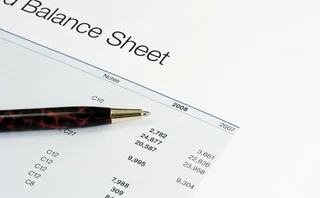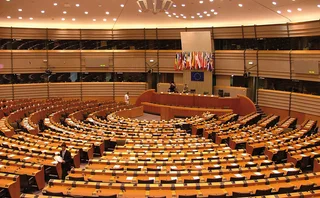
Banks Will Be Named In Future Money-Laundering Scandals, Say UK Regulators
LONDON -- UK banking regulators warn that they shall exercise the new powers they will acquire later this year to name and shame banks used by money launderers.
They made the warning in comments on the early-March news that the laxness of 15 unnamed UK and non-UK banks based in Britain allowed nearly $1.3 billion to go through accounts linked to the late Sani Abacha, the former Nigerian dictator
Only users who have a paid subscription or are part of a corporate subscription are able to print or copy content.
To access these options, along with all other subscription benefits, please contact info@risk.net or view our subscription options here: http://subscriptions.risk.net/subscribe
You are currently unable to print this content. Please contact info@risk.net to find out more.
You are currently unable to copy this content. Please contact info@risk.net to find out more.
Copyright Infopro Digital Limited. All rights reserved.
As outlined in our terms and conditions, https://www.infopro-digital.com/terms-and-conditions/subscriptions/ (point 2.4), printing is limited to a single copy.
If you would like to purchase additional rights please email info@risk.net
Copyright Infopro Digital Limited. All rights reserved.
You may share this content using our article tools. As outlined in our terms and conditions, https://www.infopro-digital.com/terms-and-conditions/subscriptions/ (clause 2.4), an Authorised User may only make one copy of the materials for their own personal use. You must also comply with the restrictions in clause 2.5.
If you would like to purchase additional rights please email info@risk.net
More on Solvency II
Lack of transposition to delay Mifid II enforcement
Some states won’t have adopted directive before June, making rule-imposition difficult, say lawyers
Capital and funding
Quants propose KVA and FVA accounting framework based on Solvency II regulation
Testing interest rate models for Solvency II applications
Alexey Botvinnik and Vladimir Ostrovski propose a validation method for interest rate models
Eiopa cuts matching adjustment risk margin
UK insurers welcome additional capital relief
Solvency II volatility dampener ineffective for euro periphery
Stress tests expose flaw in formula to calculate volatility adjustment
Solvency II technical draft too harsh, firms claim
Industry representatives call on Eiopa to soften draft specifications
Commission 'must ensure proportionality of Solvency II' rules as MEPs give green light to new regime
Omnibus II approved by European Parliament
EC to restrict deferred tax assets in Solvency II
Rules expected to be tightened on determination of future profits







